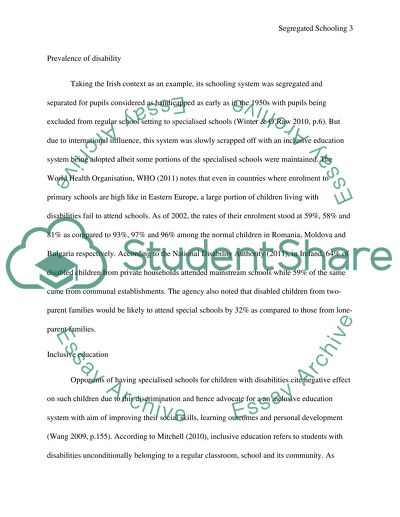Cite this document
(Special Segregated Schools Continue to Isolate People withDisabilities Essay, n.d.)
Special Segregated Schools Continue to Isolate People withDisabilities Essay. https://studentshare.org/education/1612425-special-segregated-schooling-continues-to-isolate-people-with-disabilities-from-mainstream-of-social-and-economic-life-critically-discuss
Special Segregated Schools Continue to Isolate People withDisabilities Essay. https://studentshare.org/education/1612425-special-segregated-schooling-continues-to-isolate-people-with-disabilities-from-mainstream-of-social-and-economic-life-critically-discuss
(Special Segregated Schools Continue to Isolate People WithDisabilities Essay)
Special Segregated Schools Continue to Isolate People WithDisabilities Essay. https://studentshare.org/education/1612425-special-segregated-schooling-continues-to-isolate-people-with-disabilities-from-mainstream-of-social-and-economic-life-critically-discuss.
Special Segregated Schools Continue to Isolate People WithDisabilities Essay. https://studentshare.org/education/1612425-special-segregated-schooling-continues-to-isolate-people-with-disabilities-from-mainstream-of-social-and-economic-life-critically-discuss.
“Special Segregated Schools Continue to Isolate People WithDisabilities Essay”. https://studentshare.org/education/1612425-special-segregated-schooling-continues-to-isolate-people-with-disabilities-from-mainstream-of-social-and-economic-life-critically-discuss.


